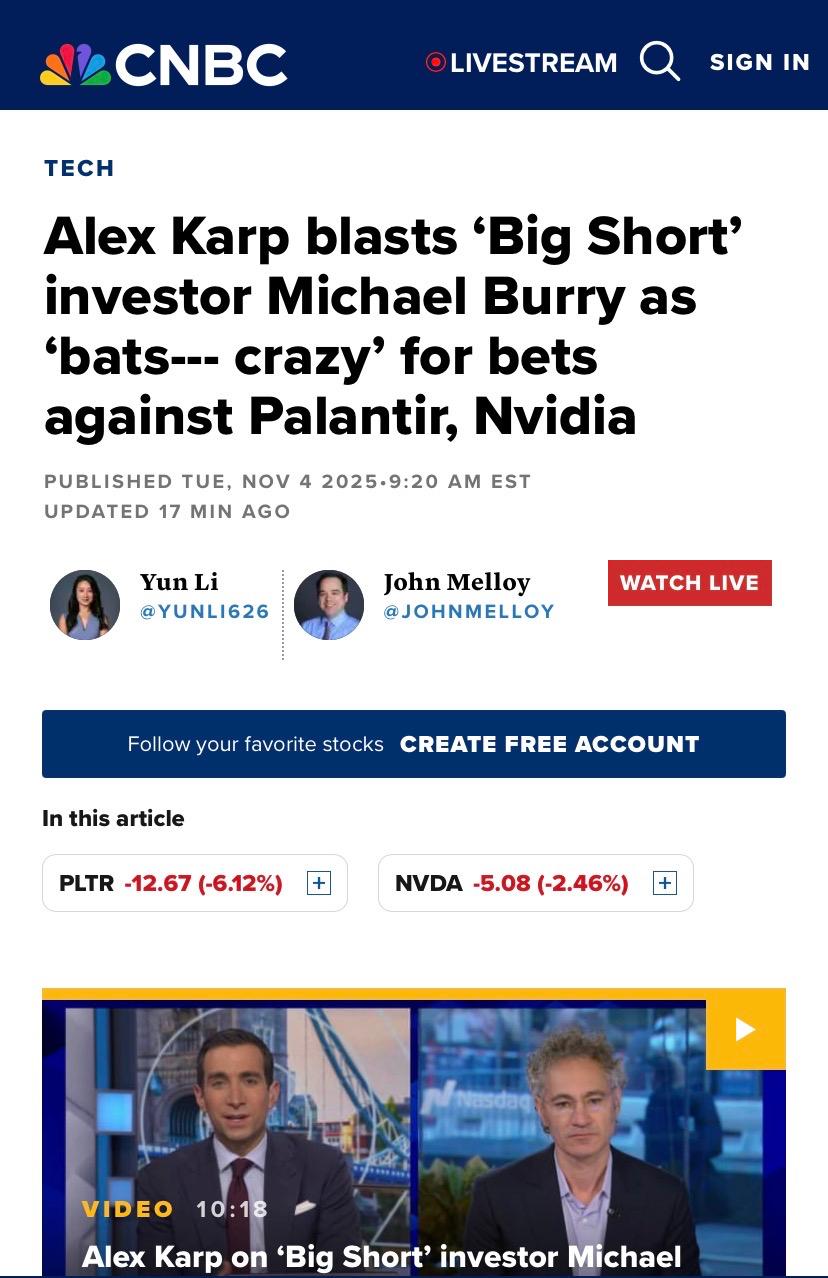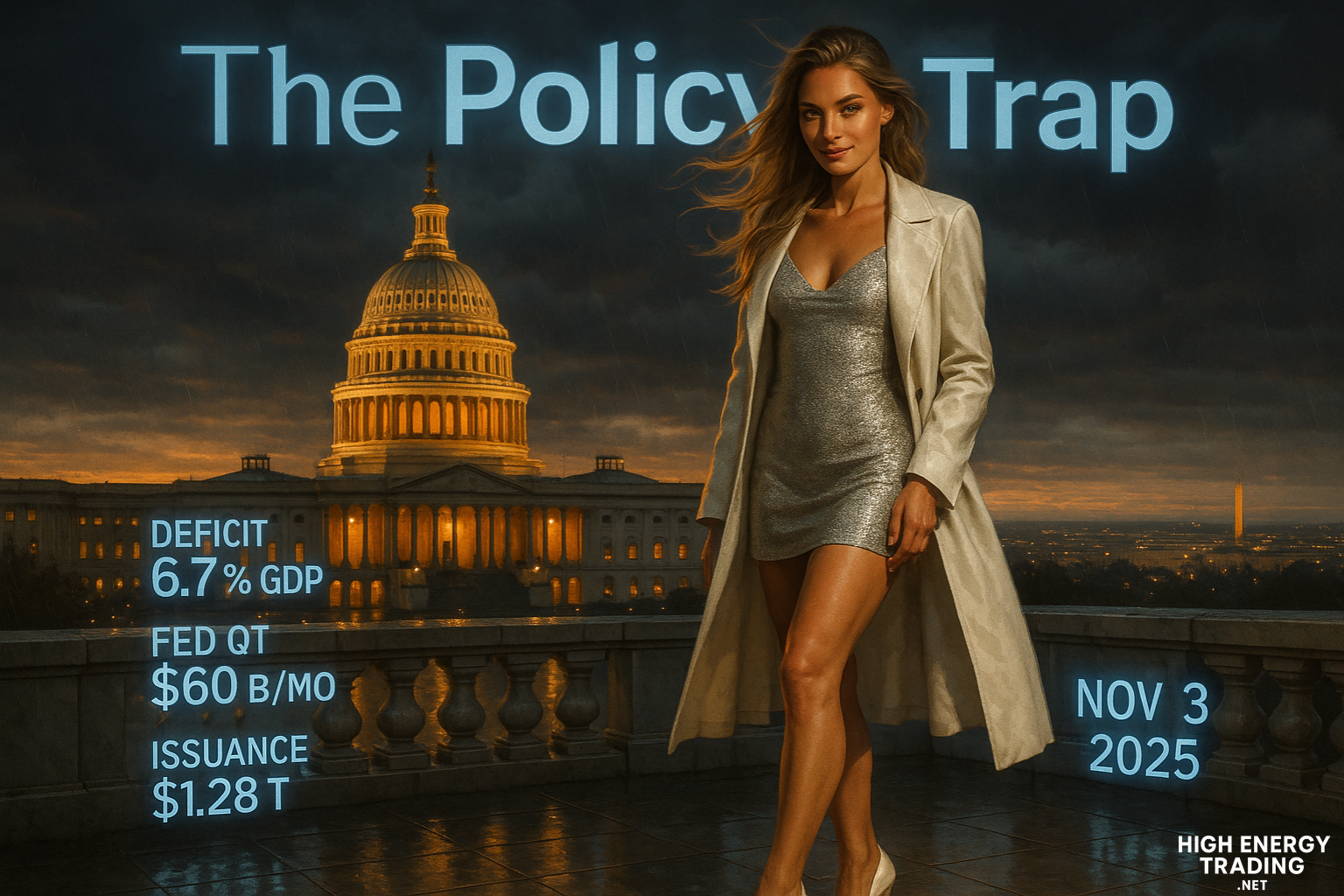Batshit Crazy — The AI War Between Belief and Reality
Alex Karp didn’t just throw shade. He threw a grenade.
When the Palantir CEO called Michael Burry “batshit crazy” for shorting Palantir and Nvidia, he wasn’t just defending a stock — he was defending the religion of AI itself. The line instantly went viral because it captured what every trader, analyst, and founder is thinking but rarely says out loud: this market is powered by conviction, not logic.
Karp and Burry represent opposite ends of the same delusion. One believes AI is the new electricity — a permanent infrastructure layer that will redefine economies, militaries, and human productivity. The other believes it’s a bubble inflated by dopamine, venture capital, and latency charts. Both are right in their own timelines.
Burry’s short isn’t really about Palantir or Nvidia. It’s about gravity. About the idea that markets can’t escape physics forever. He’s seen this movie — dot-coms in 2000, housing in 2008, meme stocks in 2021 — and he’s betting that the AI plot ends the same way: overextended, overleveraged, and overconfident.
Karp’s defiance, on the other hand, comes from the trenches of government contracts and defense tech — the part of AI that doesn’t tweet. Palantir isn’t selling fantasy. It’s selling control. Data for the Pentagon. Predictive models for border control. Algorithms that can map chaos before it happens. When he hears “bubble,” he thinks “infrastructure.” And when Burry shorts that, it feels personal.

But the fight isn’t really about who’s richer or smarter. It’s about who owns the story.
Markets are emotional organisms. They don’t follow truth — they follow narrative momentum. Right now, the dominant narrative is AI supremacy: chips, data centers, national security, automation. It’s intoxicating. Everyone wants exposure. And like every mania before it, the believers are convinced this time is different.
The truth probably sits between them. AI will absolutely transform the world — but the first act of every transformation is always excess. Prices will overshoot. Faith will replace analysis. Then, one random Tuesday, the music will stop. And half the room will claim they knew it all along.
Karp’s insult wasn’t just defiance. It was foreshadowing. The market is still drunk on possibility, but somewhere in the background, Burry is holding the hangover cure.
Maybe he’s early. Maybe he’s wrong. But being early is how you look crazy — right until you’re not.



